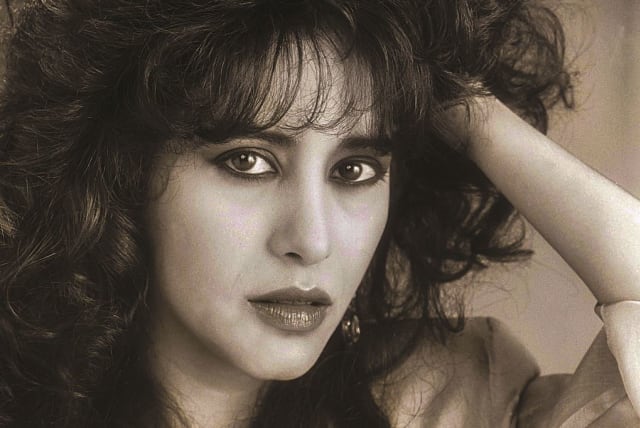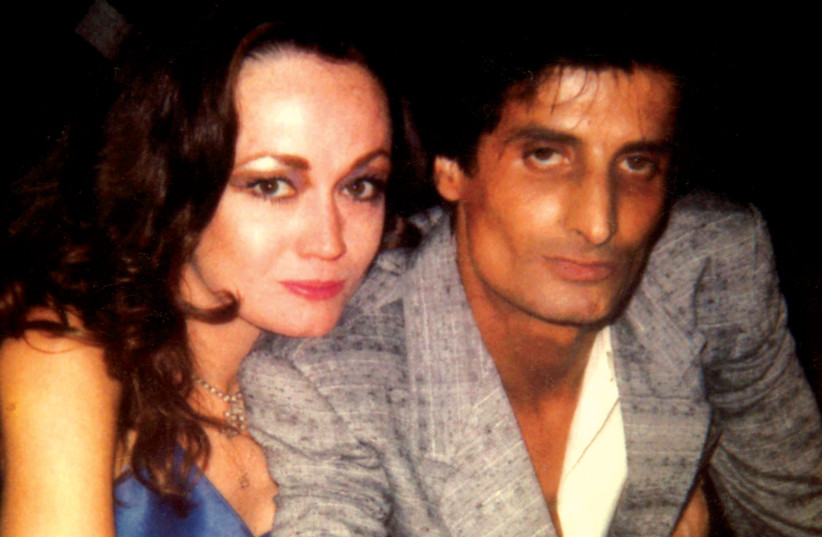Two deceased singers will be revived via AI to celebrate Israel’s 75th anniversary

The song “Here Forever” will be performed by Ofra Haza and Zohar Argov, two famous Israeli singers who passed away in 2000 and 1987.
Two famous – and deceased – Israeli singers have been brought together to collaborate on a new song for Israel’s 75th Independence Day. The song “Here Forever” (“Kan L’Olam”) is performed by Ofra Haza and Zohar Argov, two famous singers who died in 2000 and 1987, respectively, thanks to the technological wizardry of Israel-based music-tech company Session 42. As of press time, the song has been issued to Israeli radio stations and is trending at #16 on Shazam.
With the assistance of fellow Israeli company Aiode, Session 42 has leveraged recent advancements in artificial intelligence technology to “revive” the singers via the creation of vocal replicas which performed the musical number. Session 42 trained its AI singers by feeding them recordings of Haza’s and Argov’s vocals, enabling the artificial intelligence model to not only replicate their voices, but also adopt their nuanced singing styles and characteristics. As a cherry on top of the potentially dystopian art piece, the electric guitars in the song were also produced using artificial intelligence.
“What would have happened if Ofra Haza and Zohar Argov had entered the studio today and recorded together a brand-new song written for them by the writers of today’s greatest hits? We’re privileged to live in a time when we can hear the answer to this question,” said Li-or Averbach, VP of KAN’s radio division.
“The song ‘Here Forever’ expresses the values of the Israeli Broadcasting Corporation – on the one hand groundbreaking innovation, and on the other hand, respect for Israeli music and its great creators and performers,” he said.
This has some big implications
Regarding respect, there’s a huge question surrounding the moral soundness of using the voice of a dead artist to create something in their name.
Oudi Antebi, CEO & co-founder of Session 42, told The Jerusalem Post that a critical first step in the creation of “Here Forever” was making sure that they were being as respectful as possible.
“When we started thinking about this idea, the idea came about from a creative standpoint: What would we do if we could do anything? What would it be?” recalled Antebi. “We [asked ourselves], ‘Is this ethical? Is it okay to do?’ and we decided to essentially let the [artists’] families decide for us. We went to the families and said: ‘Put yourselves in the shoes of your loved ones, and let us know if you think that they would want to be part of this project.’ That’s the best we could do.”
After consideration, the families gave the go-ahead.
Then Antebi’s team began to work on the next issue: legality.
“The legal aspects are first and foremost,” he said, explaining that because the technology is so new, there’s not so much legal infrastructure in place to handle this kind of project, so getting the full signature of approval from the musicians’ rights holders was their main avenue of action.
“There has been a lot of playing around with AI and songs and mimicking voices, but there has never been a song released to the radio that uses the AI-generated voices of real people,” he said. “The entire ethical and legal concept here is new territory, and we approached it with a lot of sensitivity.”
Is the future of music people-free?
Session 42 has a lot of plans for utilizing AI and generative models in its future projects, and Antebi noted that the use of AI will only become more prevalent in the mainstream music scene.
“In Israel alone, probably 200 to 300 songs are sent to the radio every week – globally it’s like tens of thousands of songs every week, and that will only increase as AI starts creating songs by a click of a button,” he said.
If AI advancements will soon enable the full composition, production and now even performance of the world’s next hit song, will humans even have a role to play in the music industry in a few decades?
“Yes,” Antebi answered confidently. “At the end of the day, there is something about loving the artists behind the music. Now maybe the song will be made and produced and even sung by computer, but at the end of the day, people want to see artists on stage. During COVID, it became extremely noticeable, because while we could sit in front of our TVs and see live performances, people were missing the experience of going out and sitting in a crowd and having that personal interaction with the music.
“To me, that kind of proved that the concept that is now happening, where there are whole bands that are purely composed of computers, is nice as a gimmick – but I think people want real bands and live performances and those big concerts,” he said, “at least for the generations that are alive today.”
Jerusalem Post Store
`; document.getElementById("linkPremium").innerHTML = cont; var divWithLink = document.getElementById("premium-link"); if (divWithLink !== null && divWithLink !== 'undefined') { divWithLink.style.border = "solid 1px #cb0f3e"; divWithLink.style.textAlign = "center"; divWithLink.style.marginBottom = "15px"; divWithLink.style.marginTop = "15px"; divWithLink.style.width = "100%"; divWithLink.style.backgroundColor = "#122952"; divWithLink.style.color = "#ffffff"; divWithLink.style.lineHeight = "1.5"; } } (function (v, i) { });


